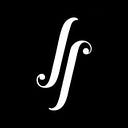- A research on Gendered Wording in Job Descriptions, by Danielle Gaucher, Justin Friesen, and Aaron C. Kay, Suggests using feminine words would attract more women applicants

- Gender Decoder tool by Kat Matfield checks a job description and identify gendered words based on the same research
- Some of our job posts can have a very high ratio of masculine vs feminine words because some words are duplicated several times
- For example, The word analytic, analysis, and many of their variants were written 7 times in one of the job description
Experiment
- But for us, more than half of the words listed are questionable
- Validate if the gender-coded words are good
- Survey with both males and females to eliminate the words that could be identified as more than one gender
- Narrowed the words down and edit the job descriptions without changing the meaning too much
What is not clear is that how these words are masculine or feminine. They are just different, and are bound to appeal to different types of people.
— KarinaFor example, “Collaborates well in a team environment” and “Ability to perform individually in a competitive environment” are not sentences that are using different words to describe the same working environment, but rather very different environments.
— Roelf

- To see if the opposite is also true, we edited one of the jobs that is already at a high ratio to be more extreme

- One of the job was totally neutral, but we added more words anyway to see if more gendered words per job has an effect on people’s behavior

- 10 total experimental job posts
- Gendered wording ratios range from 0:0 to 15:15
Results
- 241 applicants in April-June up from 197 in January-March
- 6% of interviewed applicants correctly identified the genders of job posts


Insights
- Data doesn’t necessary suggest that more feminine words attracts more women to apply
- More masculine words do not scared only women away, but they scared everyone 🙀
- Trend suggests that more feminine words would attract more applicants overall, women and men
The listed words might not be gendered at all. They’re just unattractive.
— Erin, Applicant
- The gendered words might based on framing the problem the wrong way
- The words can just easily be attributed to different lifestyles of individuals, regardless of gender
- It also has a lot to do with certain types of jobs too: one of the design jobs have 12 masculine words, but significantly more women were applying than men
- Top words that push people away: hostile, force, aggressive, hostile, reckless, stubborn, superior
- Except for the word force. Because the Force ⚔️ and Air Force 1 ✈️ & 👟
Conclusion
- Potential gender discrimination in write-ups
- It helps us see if we’re really writing the right message — think of what are truly required

